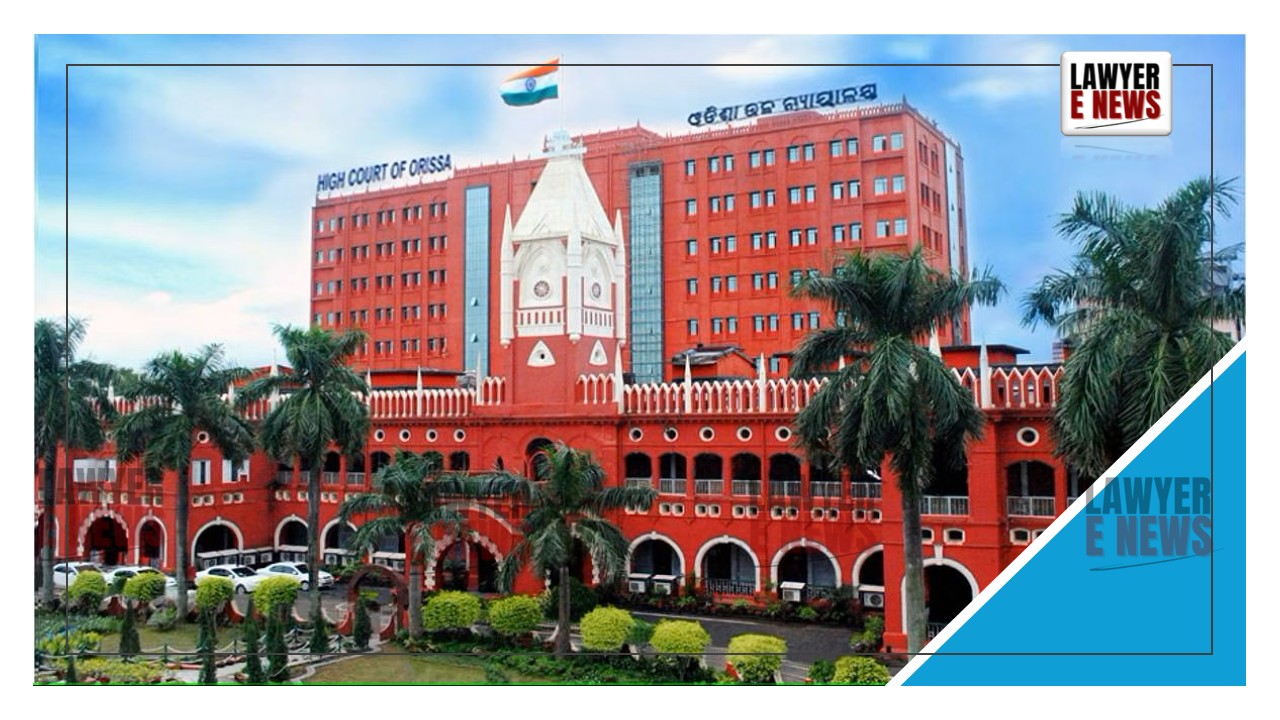-
by sayum
21 February 2026 2:44 PM



Repeated Threats, False Cases, Assaults and Financial Control Amount to Mental Cruelty - Orissa High Court upheld the judgment of the Family Court, Cuttack, granting a decree of divorce to the husband under Section 13(1)(i-a) of the Hindu Marriage Act on the ground of mental cruelty and rejecting the wife’s petition for restitution of conjugal rights. The Division Bench of Justice Chittaranjan Dash and Justice B.P. Routray emphatically held that:
“The prolonged separation, coupled with acts of physical violence, humiliation, and calculated financial exploitation, has rendered the marital bond beyond repair.”
The Court further affirmed that the wife's conduct was a “deliberate pattern of harassment and control” amounting to mental cruelty.
The parties were married on 11.05.2003, but the marriage soon disintegrated. The husband alleged that the wife resorted to constant quarrels, coercive financial control, and forced ouster of his elderly parents with the help of antisocial elements. He also complained that the wife launched a barrage of over 45 criminal cases, including multiple FIRs, to harass him and his family, compelling him to resign from his employment.
The wife, on the other hand, accused the husband of emotional neglect and abandonment and filed a petition under Section 9 of the Hindu Marriage Act for restitution of conjugal rights.
The Court firmly rejected the argument that the filing of multiple cases is merely an exercise of legal rights. Referring to the judgment in K. Srinivas Rao vs. D.A. Deepa [(2013) 2 SCR 126], the Court observed: “While seeking legal remedies is a legitimate right, the misuse of legal processes to pressurize a spouse constitutes cruelty, justifying the dissolution of the marriage.”
The Court noted that filing over 45 criminal cases and various complaints in different forums was not bona fide litigation but a deliberate strategy to cause “mental distress and emotional harassment” to the husband.
The Bench also referred to the incident of the husband's resignation due to continuous workplace harassment by the wife, noting: “The Respondent’s resignation email, wherein he cited the Appellant’s persistent interference at his workplace as the sole reason, is a critical piece of evidence illustrating the pervasive mental cruelty.”
The Court took serious note of several incidents of physical assaults and public humiliation by the wife: “The Appellant's abusive behaviour, including striking the Respondent with a Lohakhadika (iron pot) and causing scalp laceration with a music system speaker, stands well proved by medical records and corroborated witness testimonies.”
Further, the Court relied on evidence of the wife’s violent conduct towards the husband’s parents: “She forcibly ousted the Respondent’s elderly parents from their home with the aid of goons, threatening — ‘Mo swami ku de, nochet tote murder karidebi’ (Give me my husband, or I will kill you).”
Additionally, incidents abroad, including threats of suicide and public obstruction at airports, were also treated as instances of emotional blackmail and psychological cruelty.
Referring to V. Bhagat vs. D. Bhagat [(1994) 1 SCC 337] and Samar Ghosh vs. Jaya Ghosh [(2007) 4 SCC 511], the Court reiterated: “Mental cruelty is such conduct which inflicts upon the other party such mental pain and suffering that makes it impossible to reasonably expect them to continue to live together.”
The Court, after a holistic assessment, concluded: “The Appellant’s contradictory legal actions, filing for restitution of conjugal rights while simultaneously initiating domestic violence cases and excessive criminal complaints, deepened the emotional chasm between the parties.”
The Court, invoking the principle laid down in K. Srinivas Rao, acknowledged: “Where marriage is beyond repair on account of bitterness created by the acts of the husband or the wife or of both, courts have always taken irretrievable breakdown of marriage as a very weighty circumstance.”
In the present case, the Court noted: “A marriage which is dead for all purposes cannot be revived by the Court’s verdict, if the parties are not willing.”
Regarding the award of ₹63,00,000 as permanent alimony, the Court held: “The financial relief granted by the Family Court is just and equitable, balancing the Appellant’s future needs with the Respondent’s financial capacity.”
The Court dismissed the wife’s plea for enhancement, considering the Respondent’s strained financial condition and prior support given.
Dismissing the appeals, the Court declared: “This Court finds no infirmity in the impugned judgment granting divorce to the Respondent-Husband. The law cannot compel a person to endure a marriage that has become a source of suffering and torment.”
The Court thereby put an end to a 22-year-old matrimonial battle, restoring the Respondent's right to live peacefully, free from the oppressive tactics of emotional and legal harassment.
Date of Decision: 19 March 2025
